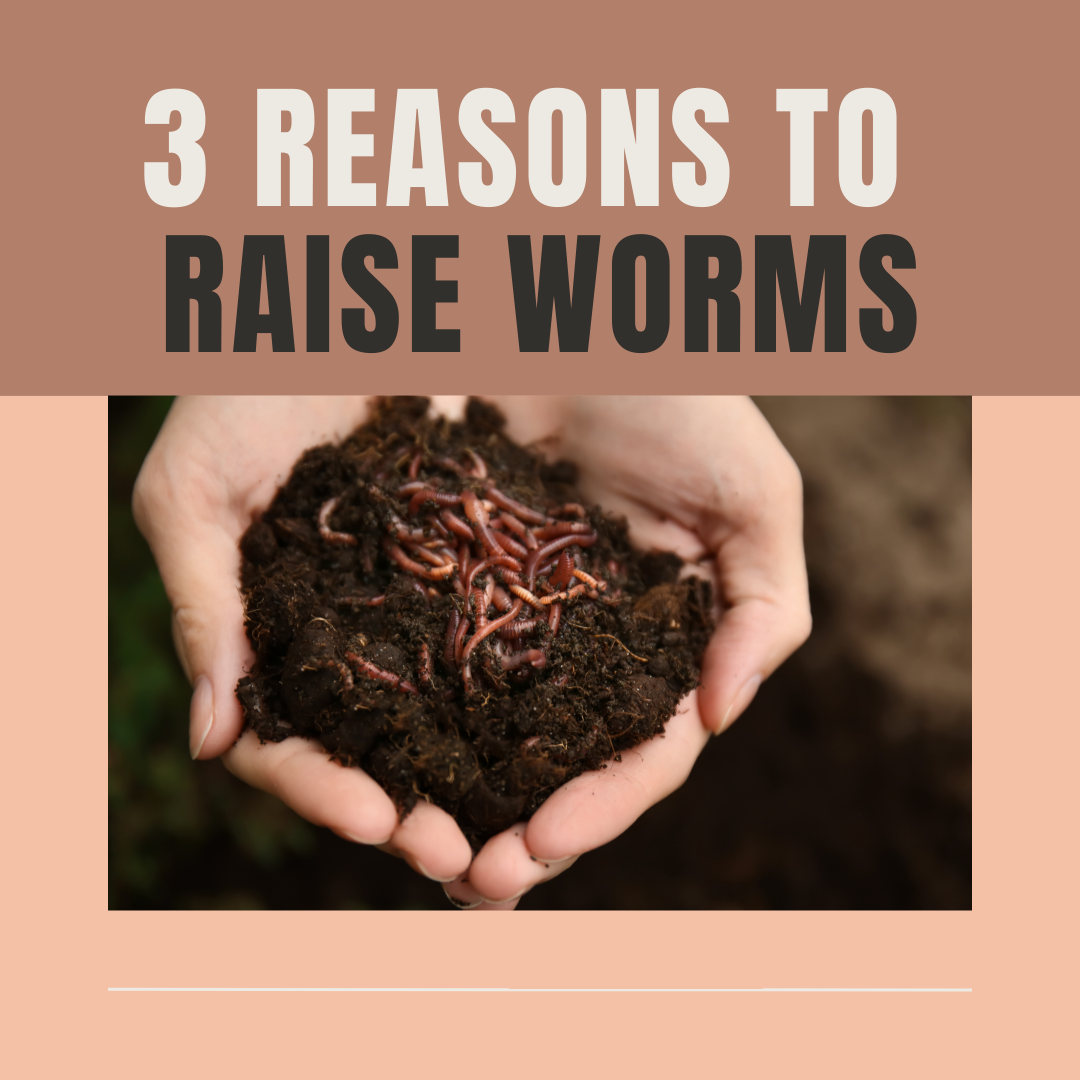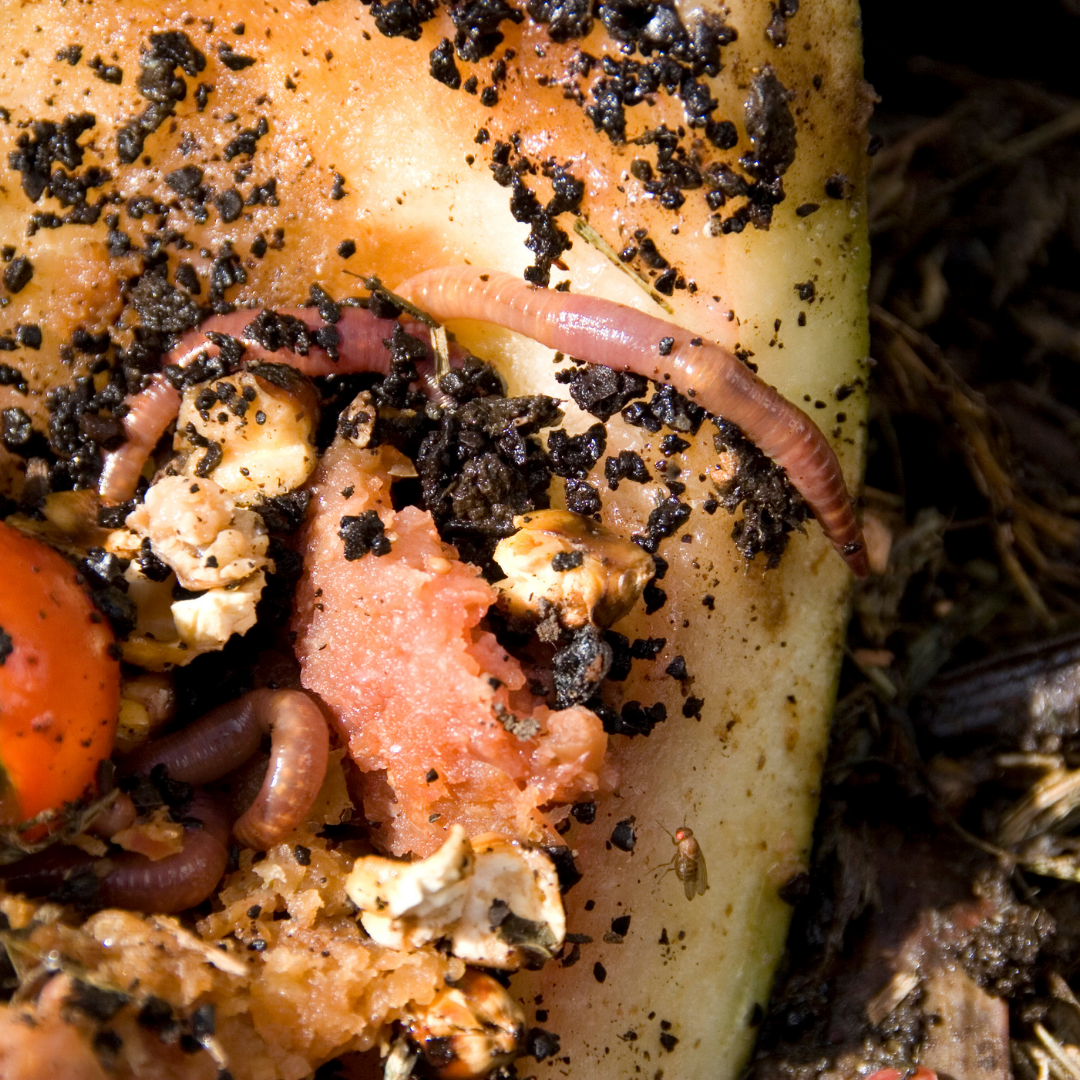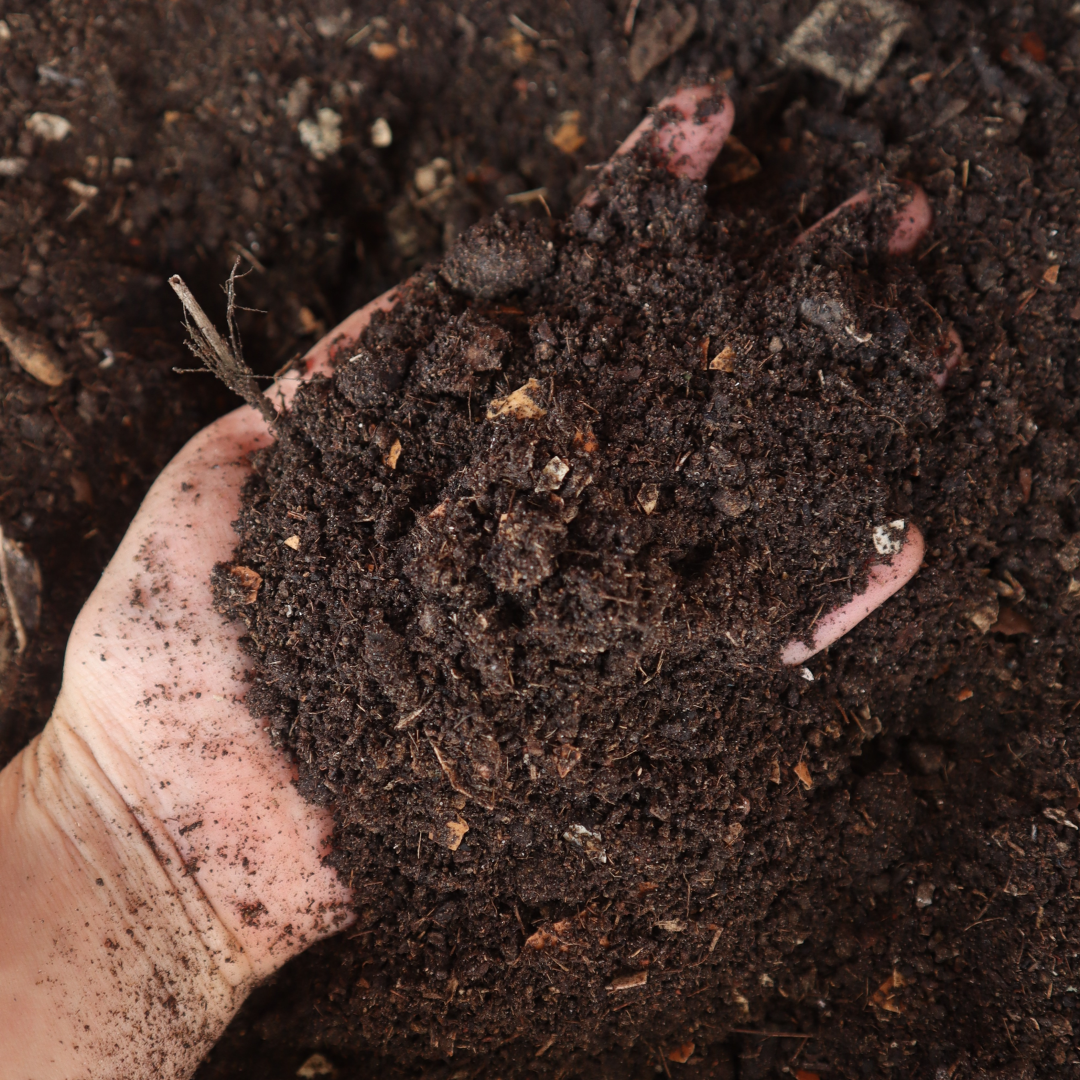3 Reasons Why Raising Worms Is Good For The Gardener
Jul 11, 2023
We all know that compost is good for the garden. But, compost is sometimes mysterious, and to the new gardener, it can even be intimidating. Worm composting, even more so.
In my experience, worm composting is NEXT LEVEL. It is easy. It is fool proof. And there is a good reason it is referred to as "garden gold." Here are three reasons why raising worms should be on your short list of garden additions. It isn't just good for the garden, but it is also good for the gardener.

1. Worms Are Decomposing Super Stars
The first, and most overwhelming reason worms should be in every gardener's arsenal is that worms turn scraps into soil at a rate of two to (some people believe) five times faster than traditional compost. That means better soil faster!! And that is why I will always have worms working for my garden.
In a traditional compost, or even a mini-compost in the garden bed, while both are great, the breakdown is subject to alot of factors that you can't control. Under perfect conditions, worms get to work. And that means less work for you and better soil faster.
2. In a Vermicompost You Control Everything
From the temperature to the predators to the moisture, you control it all. That is the second reason I think gardeners should be raising worms. This is a game changer because as temps fluctuate so does your worms' ability to work. If it's cold, they slow down. It if is hot they go deep to find cool soil. In either of these instances, your scraps can turn anaerobic, which means that they aren't decomposing fast enough to keep the good bacteria in charge. Once the bad bacteria take over, it is a battle to get the balance back. In the worm bin this hardly ever happens because we keep them inside where the temps stay right where the worms like them. Also, as a bonus, there are no ants in a worm bin, no critters visiting the pile, no questionable characters surprising you when you lift the lid, and no visitors eating the worms!! They are a hot commodity don't ya know?
Indoors your worms are happily minding their own business 24/7, working hard for your garden 365 days a year. In the winter....you are making compost. In the summer....you are making compost. When it rains and when it doesn't....you are making compost. This means that year round your soil is improving. JACKPOT!!

3. The Nutrients Are Superior
And finally, the nutrients are superior!! The results of decomposition are different when they occur from temperature vs digestion. In a worm bin, the worms eat the scraps you leave, concentrating the nutrients in their bodies and adding important biology to the castings that is not present in compost. These mircro-nutrients in worm castings are much more diverse and plentiful than that of a traditional thermophyllic pile simply because of the process.
So let's break this down a little bit for it to make more sense. When we talk about nutrients that plants need to thrive, we divide them into two groups. Macro and mirco-nutrients. We all know the big guys: nitrogen, phosphorus, and potassium. These are the macro-nutrients, and the ones that we focus the most on. If you want to create a soil ecosystem that thrives so that your plants can thrive too, you will need more than just those three. Nutrients like magnesium, boron, copper, calcium, iron, and manganeses are equally as important, but more difficult to add to the soil. Enter in compost. The most complete soil amendment on the planet (Ever wonder why volunteer pumpkins grow without any borer pressure straight out of a compost pile???)
Now here is the amazing part. In addition to macro-nutrients like nitrogen, phosphorus, and potassium, vermicompost is also an excellent source of beneficial soil microorganisms, micronutrients, plant enzymes, and plant growth hormones.
So are you convinced yet???
Here are a few things you need to know to get the most out of your worm bin operation.
'Red Wiggler' worms are used in vermicomposting. You can purchase red wigglers from a bait store or buy them online. Don't dig up the worms in your back yard. They won't work well at all since they rely on soil for nutrients. On the other hand, red wigglers can live in the worm bedding that you create, and they will give you the compost that you need. That is what you want!!
Keep a close eye on temperature. Red worms thrive in temperatures between 55° F and 77° F. They are near-surface dwellers and feed off of scraps that are buried just under the surface. When your bin contents stay under 85°F and above freezing, your worms will be working!
A pound of worms can handle a half pound of scraps. Keep this in mind. When you feed your worms, do so by the pound (give or take). Don't overfeed your worms. When the food runs out, replenish. You will be surprised at how fast a half pound of scraps will disappear.
The smaller the sraps, the faster they are decomposed. Remember, worms are the workers here. You have no help from temperature, so to turn scraps into soil quickly, before the bad bacteria takes hold, offer small pieces to the worms. A quick chop is all they need.
Harvest castings every month or so. You will want to remove the worm castings every so often to keep your bin in balance. So, to do this, feed all scraps on rotating sides of the bin. If you fed last week on the left, feed this week on the right. This will draw all of your worms to one side and you can harvest the other. If you get a few straggler worms in your harvest, put them back in the bin or let them make their new home in your garden bed. Then, refill your bin with new layers of kitchen waste and bedding.

One final thing to consider about vermicomposting is that it is not good for killing weed seeds, pathogens, or bad bacteria. Remember that when you are feeding your worms. The worm bin is not going to heat up enough to kill off any bad guys, so don't add weeds, rotting food, or diseased plants to your worm bin. Although a typical thermophyllic pile (one that decomposes by temperature) is more work and takes longer, it does serve its place, as does a mini-compost in your garden. There is a place for all types of composts, but if you want the fastest, easiest, and most nutrient rich, you will probably love a worm bin! They are good for the garden and good for the gardener.
In the next post of this three post series I will show you how to set up an inexpensive worm bin and how to raise worms successfully. See you there!



